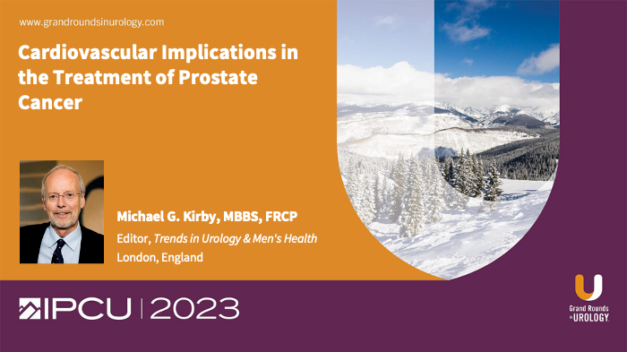Cardiovascular Implications in the Treatment of Prostate Cancer
Michael G. Kirby, MBBS, FRCP, discusses cardiovascular implications of androgen deprivation therapy (ADT). Professor Kirby explains prostate cancer treatment choices have become complex, sharing Prostate Cancer UK Best Practice Pathway—Prostate Cancer: Treatment by Risk Stratification. Professor Kirby focuses on the cardiovascular risks, pointing out that cardiovascular disease is the second leading cause of death in men with prostate cancer and the primary cause of death in men with T3 or lower-stage disease.
Professor Kirby enumerates ways ADT adversely impacts cardiovascular risk factors, such as obesity, insulin sensitivity, and serum lipoproteins. Loss of testosterone may increase aortic stiffness, promote arterial wall thickness, and cause endothelial dysfunction which promotes the formation of atherosclerotic plaque. He outlines ways testosterone protects the cardiovascular system, causing coronary vasodilation, maintaining plaque stability, having an antiarrhythmic effect, and shortening the QT segment.
Professor Kirby then stresses the importance of behavioral and pharmacologic risk management because second-line ADT agents (abiraterone acetate and enzalutamide) both show cardiovascular safety signals. He advocates for a proactive, multidisciplinary effort to effectively communicate with patients and their primary care physicians as well as including team members such as physical therapists, specialists, and social workers, among others. Finally, Professor Kirby explains the ABCDE steps to reduce risk of cardiovascular disease in prostate cancer patients.
Read More
